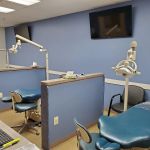- 1-Understanding-Tooth-Decay-in-Baby-Teeth
- 2-Early-Signs-and-Detection-of-Baby-Tooth-Decay
- 3-Professional-Treatment-Options-for-Baby-Teeth-Decay
- 4-Home-Care-and-Prevention-Strategies
- 5-Nutritional-Considerations-for-Healthy-Baby-Teeth
- 6-Common-Myths-About-Treating-Baby-Tooth-Decay
- 7-When-to-Consult-a-Pediatric-Dentist
- 8-How-Dentistry-Toothtruth-Can-Support-Your-Childs-Dental-Health
1. Understanding Tooth Decay in Baby Teeth
Tooth decay in baby teeth, medically known as early childhood caries, is a common issue that affects many young children. Despite being temporary, baby teeth play an essential role in a child’s oral health, speech development, and proper alignment of permanent teeth. Understanding how to treat tooth decay in baby teeth starts with recognizing why these teeth are vulnerable.
The enamel on baby teeth is thinner than on permanent teeth, making them more susceptible to decay caused by sugary foods, poor oral hygiene, and bacteria buildup. Left untreated, decay can lead to pain, infection, and complications that affect overall health.
Awareness of tooth decay's impact on baby teeth encourages parents and caregivers to take prompt action and seek appropriate treatments to protect their child’s smile.
2. Early Signs and Detection of Baby Tooth Decay
Detecting tooth decay early significantly improves treatment outcomes. Parents should look for signs such as white spots or discoloration on teeth, sensitivity, difficulty eating, or visible holes or pits. Sometimes children may show irritability or complain of tooth pain.
Regular dental checkups are crucial because pediatric dentists can identify early decay that isn’t visible to the untrained eye. Using tools like digital X-rays, dentists assess the extent of decay and recommend tailored treatment plans.
Early intervention can halt decay progression and reduce the need for more invasive procedures later.
3. Professional Treatment Options for Baby Teeth Decay
Treatment depends on the severity of the decay. For minor decay, fluoride varnishes or dental sealants may be applied to strengthen enamel and protect teeth. In cases where cavities have formed, dentists may perform fillings using child-safe materials.
More advanced decay might require pulpotomy (removal of infected pulp) or even extraction if the tooth is severely damaged. Modern pediatric dentistry focuses on minimizing discomfort and anxiety through gentle techniques and child-friendly environments.
Timely treatment prevents infections that can affect permanent teeth and overall well-being.
4. Home Care and Prevention Strategies
Maintaining good oral hygiene at home is vital in preventing and managing tooth decay in baby teeth. Parents should help children brush twice daily with fluoride toothpaste, floss gently, and avoid prolonged exposure to sugary drinks or bedtime bottles.
Establishing healthy routines, such as regular dental visits and balanced diets, complements professional care. Using positive reinforcement encourages children to embrace oral hygiene habits.
These preventive measures reduce the risk of decay and build foundations for lifelong dental health.
5. Nutritional Considerations for Healthy Baby Teeth
Diet plays a significant role in tooth health. Limiting sugary snacks and drinks while promoting water, dairy products, and crunchy fruits and vegetables helps maintain strong enamel. Nutrients like calcium, vitamin D, and phosphorus are essential for developing healthy teeth and bones.
Consulting with a pediatrician or dentist about dietary choices supports comprehensive care. Educating families on nutrition fosters proactive health management.
6. Common Myths About Treating Baby Tooth Decay
There are several misconceptions around baby tooth decay, such as believing baby teeth do not need care since they fall out eventually, or that cavities in children will heal on their own. These myths can delay treatment and worsen dental problems.
Understanding the facts—that baby teeth are important for speech, chewing, and guiding permanent teeth—motivates timely professional intervention and proper home care.
7. When to Consult a Pediatric Dentist
Early dental visits, ideally by the child’s first birthday, allow pediatric dentists to monitor oral development and advise on prevention. Immediate consultation is necessary if signs of decay appear or if a child experiences pain.
Professional guidance ensures early diagnosis and treatment, reducing complications and anxiety for both child and parents.
8. How Dentistry Toothtruth Can Support Your Child’s Dental Health
Dentistry Toothtruth offers expert pediatric dental services focused on treating tooth decay in baby teeth with compassionate care and the latest techniques. Their team provides personalized treatment plans, educational resources, and ongoing support for families seeking to maintain healthy smiles.
For parents looking for trusted guidance and effective remedies on how to treat tooth decay in baby teeth, Dentistry Toothtruth is a valuable resource to explore and connect with.







 East Brunswick Family Dental4.0 (679 review)
East Brunswick Family Dental4.0 (679 review) Children's Dental Health of Downingtown4.0 (658 review)
Children's Dental Health of Downingtown4.0 (658 review) Kidz R Kool Pediatric Dentistry4.0 (661 review)
Kidz R Kool Pediatric Dentistry4.0 (661 review) Shore Dental Arts, P.A.5.0 (717 review)
Shore Dental Arts, P.A.5.0 (717 review) Leesville Dental Studio4.0 (473 review)
Leesville Dental Studio4.0 (473 review) Pratte John DDS4.0 (15 review)
Pratte John DDS4.0 (15 review) The Importance of Oral Health Education During Pregnancy for a Healthy Pregnancy
The Importance of Oral Health Education During Pregnancy for a Healthy Pregnancy Best Tips for Brushing Your Teeth Properly for Healthy Gums: Essential Techniques for Oral Health
Best Tips for Brushing Your Teeth Properly for Healthy Gums: Essential Techniques for Oral Health Why Skipping Dental Checkups Can Lead to Bigger Oral Health Problems
Why Skipping Dental Checkups Can Lead to Bigger Oral Health Problems Advantages of Porcelain Dental Restorations
Advantages of Porcelain Dental Restorations How Can Diabetes Cause Tooth and Gum Problems? Preventing and Managing Oral Health Issues
How Can Diabetes Cause Tooth and Gum Problems? Preventing and Managing Oral Health Issues Healthy Habits for Promoting Good Oral Health and Hygiene: Tips for a Healthy Smile
Healthy Habits for Promoting Good Oral Health and Hygiene: Tips for a Healthy Smile